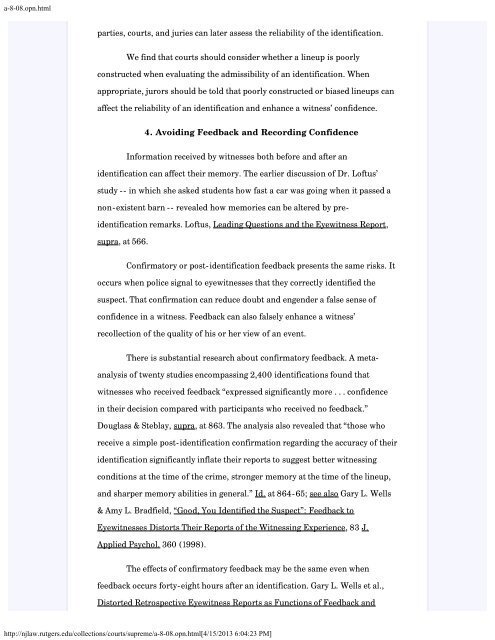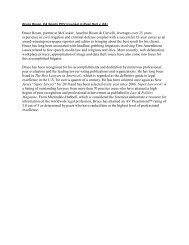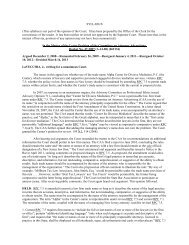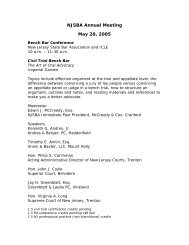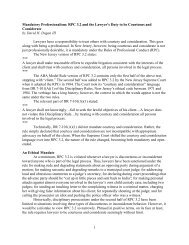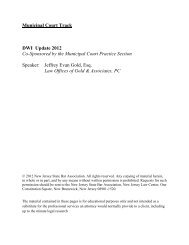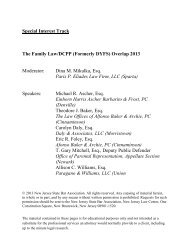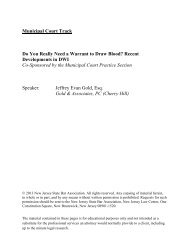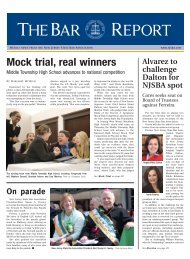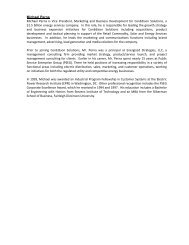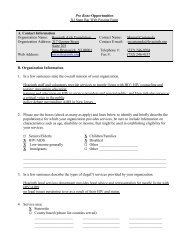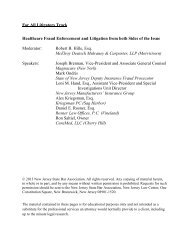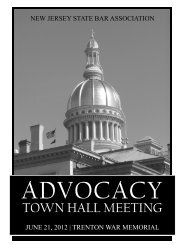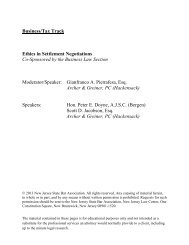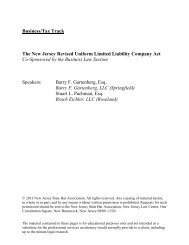State v. Henderson and the New Model Jury Charges - New Jersey ...
State v. Henderson and the New Model Jury Charges - New Jersey ...
State v. Henderson and the New Model Jury Charges - New Jersey ...
Create successful ePaper yourself
Turn your PDF publications into a flip-book with our unique Google optimized e-Paper software.
a-8-08.opn.html<br />
parties, courts, <strong>and</strong> juries can later assess <strong>the</strong> reliability of <strong>the</strong> identification.<br />
We find that courts should consider whe<strong>the</strong>r a lineup is poorly<br />
constructed when evaluating <strong>the</strong> admissibility of an identification. When<br />
appropriate, jurors should be told that poorly constructed or biased lineups can<br />
affect <strong>the</strong> reliability of an identification <strong>and</strong> enhance a witness’ confidence.<br />
4. Avoiding Feedback <strong>and</strong> Recording Confidence<br />
Information received by witnesses both before <strong>and</strong> after an<br />
identification can affect <strong>the</strong>ir memory. The earlier discussion of Dr. Loftus’<br />
study -- in which she asked students how fast a car was going when it passed a<br />
non-existent barn -- revealed how memories can be altered by preidentification<br />
remarks. Loftus, Leading Questions <strong>and</strong> <strong>the</strong> Eyewitness Report,<br />
supra, at 566.<br />
Confirmatory or post-identification feedback presents <strong>the</strong> same risks. It<br />
occurs when police signal to eyewitnesses that <strong>the</strong>y correctly identified <strong>the</strong><br />
suspect. That confirmation can reduce doubt <strong>and</strong> engender a false sense of<br />
confidence in a witness. Feedback can also falsely enhance a witness’<br />
recollection of <strong>the</strong> quality of his or her view of an event.<br />
There is substantial research about confirmatory feedback. A metaanalysis<br />
of twenty studies encompassing 2,400 identifications found that<br />
witnesses who received feedback “expressed significantly more . . . confidence<br />
in <strong>the</strong>ir decision compared with participants who received no feedback.”<br />
Douglass & Steblay, supra, at 863. The analysis also revealed that “those who<br />
receive a simple post-identification confirmation regarding <strong>the</strong> accuracy of <strong>the</strong>ir<br />
identification significantly inflate <strong>the</strong>ir reports to suggest better witnessing<br />
conditions at <strong>the</strong> time of <strong>the</strong> crime, stronger memory at <strong>the</strong> time of <strong>the</strong> lineup,<br />
<strong>and</strong> sharper memory abilities in general.” Id. at 864-65; see also Gary L. Wells<br />
& Amy L. Bradfield, “Good, You Identified <strong>the</strong> Suspect”: Feedback to<br />
Eyewitnesses Distorts Their Reports of <strong>the</strong> Witnessing Experience, 83 J.<br />
Applied Psychol. 360 (1998).<br />
The effects of confirmatory feedback may be <strong>the</strong> same even when<br />
feedback occurs forty-eight hours after an identification. Gary L. Wells et al.,<br />
Distorted Retrospective Eyewitness Reports as Functions of Feedback <strong>and</strong><br />
http://njlaw.rutgers.edu/collections/courts/supreme/a-8-08.opn.html[4/15/2013 6:04:23 PM]


